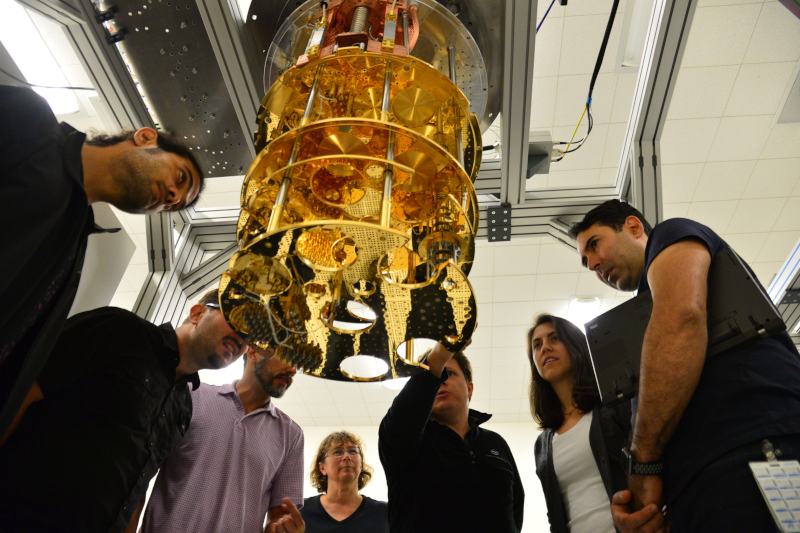 EMERGING TECH
EMERGING TECH
 EMERGING TECH
EMERGING TECH
 EMERGING TECH
EMERGING TECH
U.S. officials today announced a broad research initiative to invest more than $1 billion over five years in new breakthroughs in quantum information sciences and artificial intelligence.
As part of the effort, 12 specialized research centers will be set up nationwide. The bulk of the program’s budget, $625 million, will go towards quantum information sciences.
That field encompasses not only quantum computing but also related areas that will be important to unlocking the technology’s full benefits. One of the main focus areas is quantum networking, an emerging approach that promises to enable highly secure data transfers over long distances.
The quantum program will be managed by the U.S. Energy Department under the name Q-Next. The plan is to set up five new research centers at the department’s existing Brookhaven, Argonne, Fermi, Lawrence Berkeley and Oak Ridge laboratories. Officials also plan to set up two “quantum foundries” that will supply the specialized materials and devices researchers will need for their work.
The Q-Next program is a joint public-private collaboration. Besides the Energy Department, more than a half-dozen universities and multiple private companies will participate. The Energy Department said in a statement that partner organizations will contribute $93 million to the effort.
One of the participants is Intel Corp., which has a sizable in-house quantum computing operation. The collaboration will enable it to “actively contribute to the industry’s efforts on quantum computing,” the chipmaker said in a statement today. Microsoft Corp. and IBM Corp. are participating too.
“IBM Quantum will collaborate with this Center to design new quantum algorithms and advanced error mitigation techniques bridging the gap between near-term and fault-tolerant quantum computers,” IBM’s three top quantum engineers wrote in a blog post. The company will seek to apply technologies developed through the collaboration to the ”study of novel materials.”
IBM, Microsoft and Intel could potentially see significant returns on their contributions to Q-Next. With their large in-house quantum divisions, the companies are well-equipped to incorporate any commercially applicable breakthroughs that emerge from the initiative into their products. This is theoretically also true for the other tech firms building quantum machines, which creates an incentive that may lead more companies to join Q-Next over time.
“The fundamental discoveries and technological advances enabled by Q-NEXT will expedite the coming quantum technology revolution and build the quantum workforce of the future,” said JoAnne Hewett, deputy director of Q-Next.
The other component of the $1 billion-plus U.S. research initiative announced today is the establishment of seven new AI centers. Five of those will be supervised by the Energy Department. The two, in turn, are set to operate under the wing of the U.S. Agriculture Department.
The focus areas of the effort will include the development of new ways to use AI in atmospheric, oceanic and materials sciences. Participating researchers will also conduct higher-level theoretical work in areas such as neural network optimization.
Support our mission to keep content open and free by engaging with theCUBE community. Join theCUBE’s Alumni Trust Network, where technology leaders connect, share intelligence and create opportunities.
Founded by tech visionaries John Furrier and Dave Vellante, SiliconANGLE Media has built a dynamic ecosystem of industry-leading digital media brands that reach 15+ million elite tech professionals. Our new proprietary theCUBE AI Video Cloud is breaking ground in audience interaction, leveraging theCUBEai.com neural network to help technology companies make data-driven decisions and stay at the forefront of industry conversations.